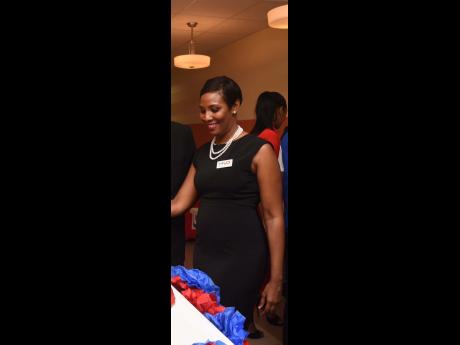Styrofoam ban timeline too short, says Mahfood - Retailers begin switch to reusable bags, but mum on losses
Manufacturers of styrofoam have been given more than a year to exit production, but William Mahood says his company needs a longer timeline to come up with alternatives beyond the 2020 deadline announced Monday.
The options reviewed so far for styrofoam are too expensive, the Wisynco Group chairman told the Financial Gleaner, who also suggested that the government was willing to compromise but not to the extent they had hoped for.
"We had asked for 3-5 years, which is normal in many other jurisdictions," Mahfood said Tuesday. "They have confirmed to the president of the JMEA until 2021," he said. JMEA is the trade association for manufacturers and exporters.
Meanwhile, retailers such as supermarket chain Hi-Lo Food Stores and Maxie Department Store say they expect to make a smooth transition from single-use plastic bags, having already tested reusables to good reception from consumers.
The plastics ban announced by minister without portfolio at the Ministry of Economic Growth and Job Creation, Daryl Vaz, on Monday covers the importation, manufacturing, distribution and use of drinking straws and all single-use plastic carrier bags, to be implemented in less than four months on January 1, 2019. The ban applies to bags with dimensions at or below 24x24 inches.
Styrofoam imports will also cease by next January, but local makers of the packaging product will get another year beyond that - to January 1, 2020 - to ramp down.
Wisynco is a manufacturing and distribution company. Its core manufacturing business is beverages, but it makes straws and other food utensils under the Sweet brand.
Mahfood said on Monday that Wisynco manufactures about 60 per cent of the styrofoam boxes used locally. Alternative products, in the main, are made of pressed board.
"We have been trying to identify alternatives for some time, but most are very expensive and the technology is in its infant stages," the Wisynco chairman said, without disclosing the comparative costs.
"It is too early to tell whether the market would be able to handle the new products from an affordability point of view."
The effective date for banning manufactured styrofoam "we still feel is too short to replace the current manufactured items," he added.
He declined to comment on any inventory losses which might be associated with the styrofoam ban.
Wisynco has otherwise taken steps to reduce its plastics footprint, advertising this week that the plastic content in the bottles used to package its Wata product has been reduced by 50 per cent. Mahfood said the initiative came at a cost, using "new and very expensive technologies".
At Hi-Lo, General Manager Renee Nathan said the supermarket chain estimates that it uses more than 100,000 bags per month to package customers' groceries, but it's more difficult to calculate the number of reusables now in use, due to shopping patterns.
"Again, this is difficult to estimate, as we believe a number of customers already have reusable bags in their possession and will now be more consistent in using them going forward. In addition, many customers shop for groceries multiple times per month. As a result, we believe that the number of reusable bags needed would not equate to the current usage of single-use plastic bags," Nathan told the Financial Gleaner.
Under a new Go Green Initiative, the company put up 2,000 reusable shopping totes for sale to customers at the Barbican, Cross Roads, Portmore and Liguanea stores, starting on Earth Day in April.
"We will continue to promote the use of reusable bags," said Nathan. "We have been doing that already on social media and will be doing it even more, now that it will be actually banned. We have encouraged customers and it has been well received."
For grocery chains, the Government indicates that the use of polystyrene for the packaging of food items such as raw meats will be exempt. Single-use shopping bags made of polyethylene, which are branded by some retailers, may seek exemptions from the ban from the National Environment and Planning Agency, but those exemptions will not be allowed beyond January 1, 2021.
At clothing retailer Maxie, the Kingston store manager, Ann-Marie Cupie, said they carry canvas bags as alternatives. The bags, which the chain sources from overseas, retail for $160 each.
"Replacing plastic bags is a good idea; a great idea," said Cupie, but she was not immediately forthcoming on the prospective inventory losses from the branded single-use shopping bags in stock.


